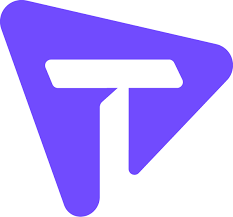Integrating AI and Machine Learning into Cloud Analytics
 Tellius Usa
Tellius Usa
In the ever-evolving landscape of data analytics, the convergence of artificial intelligence (AI) and machine learning (ML) with cloud computing has revolutionized how businesses derive insights and drive decision-making processes. This synergy not only enhances analytical capabilities but also enables organizations to leverage vast amounts of data efficiently and cost-effectively.
The Power of AI and ML in Cloud Analytics
AI and ML algorithms are designed to analyze data, identify patterns, and make predictions, tasks that are often computationally intensive and require substantial computational resources. Cloud computing platforms offer scalable infrastructure and resources on-demand, making them ideal environments for deploying AI and ML models. By harnessing the power of the cloud, organizations can process large datasets faster, train complex models more efficiently, and derive actionable insights in real-time.

Benefits of Integration
Scalability and Flexibility: Cloud platforms provide scalable computing resources, allowing organizations to scale AI and ML workloads based on demand. This flexibility enables businesses to handle varying data volumes and computational needs without upfront investments in hardware.
Cost Efficiency: Pay-as-you-go pricing models offered by cloud providers reduce upfront costs and operational expenses associated with maintaining on-premises infrastructure. This cost-effectiveness is particularly advantageous for smaller businesses or startups looking to leverage advanced analytics capabilities.
Enhanced Performance: Leveraging cloud-based AI and ML services can significantly enhance performance metrics such as processing speed, model training times, and overall system responsiveness. This improvement translates into quicker insights and more agile decision-making processes.
Innovation Acceleration: Cloud platforms continually innovate with new AI and ML tools, frameworks, and managed services. This enables organizations to stay ahead of the curve by integrating cutting-edge technologies without the burden of managing complex infrastructure.
Challenges to Consider
Despite the numerous benefits, integrating AI and ML into cloud analytics poses several challenges that organizations must address:
Data Security and Privacy: Handling sensitive data in the cloud requires robust security measures to protect against cyber threats and ensure compliance with regulations such as GDPR or CCPA.
Skill Gaps: Implementing AI and ML solutions demands specialized skills in data science, AI model development, and cloud architecture. Bridging these skill gaps through training and partnerships is crucial for successful deployment.
Integration Complexity: Integrating diverse AI and ML tools with existing cloud infrastructure and data pipelines can be complex and may require significant planning and customization.
Best Practices for Successful Integration
Start with Clear Objectives: Define clear business objectives and use cases for AI and ML integration to align technological investments with strategic goals.
Choose the Right Cloud Provider: Select a cloud provider that offers robust AI and ML services tailored to your organization's needs, considering factors like performance, cost, and integration capabilities.
Data Preparation and Quality: Ensure data quality and consistency before integrating AI and ML models, as the accuracy of insights depends heavily on the quality of input data.
Monitor and Iterate: Continuously monitor AI and ML performance metrics and iterate on models to improve accuracy and relevance over time. Cloud platforms provide tools for monitoring performance and optimizing resource allocation.
Integrating AI and ML into cloud analytics represents a paradigm shift in how businesses harness data-driven insights to gain competitive advantages. By leveraging the scalability, flexibility, and innovation capabilities of cloud computing, organizations can unlock new opportunities for innovation, efficiency, and growth. While challenges exist, addressing them with strategic planning, robust security measures, and ongoing skill development can pave the way for successful implementation and sustainable business impact.
Embracing AI and ML in cloud analytics isn't just about adopting new technologies—it's about empowering organizations to transform data into actionable intelligence that drives informed decision-making and drives future success.
Subscribe to my newsletter
Read articles from Tellius Usa directly inside your inbox. Subscribe to the newsletter, and don't miss out.
Written by
